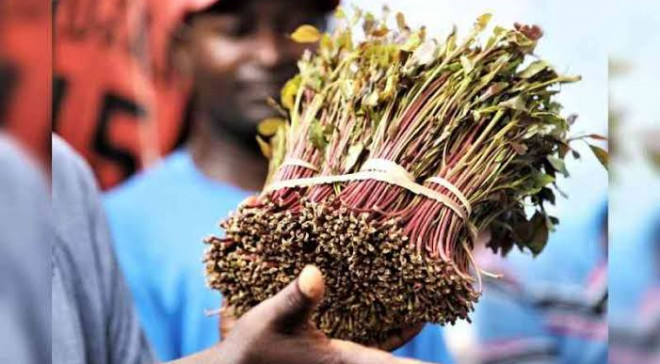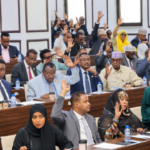NAIROBI – Kenyan miraa traders are protesting the exorbitant commissions they are being forced to pay to cartels within the industry following the resumption of Miraa exports to Somalia.
Speaking in Meru on Friday, July 14, the traders lamented that for the past nine months, they have been forced to pay an extra $4.5 (Ksh636) per kilo to these clandestine cartels operating at Kenyan airports on top of legitimate freight charges.
Speaking to Kenyans.co.ke, Kimathi Munjuri, the Chairperson of the Nyambene Trade Association, confirmed this allegation regretting that despite President William Ruto’s promise to rid the promising sector of cartels, traders were still being exploited.
The chairperson made a case for the Miraa traders, calling for change especially considering the tough economic situation in the country which he said hit the traders hard.
“The reality is straightforward. These punitive measures are imposed on our traders because the perpetrators are well aware that we lack alternative export destinations for our produce. Somalia remains the primary country to which we export, and these individuals exploit this knowledge to their advantage,” Munjuri stated.
“Remember that miraa is a very perishable commodity and that is why at the moment our traders have no option but to pay that $4.5,” he added.
Underscoring the magnitude of the situation, Miraa traders from Meru County have called on the government to investigate the matter and bring the cartels to book.
“There is a man with a plane going by the name blue bird who is oppressing us. He is controlling the price of miraa before it leaves Maua and even when it enters Somalia, he also dictates prices,” a section of the miraa traders lamented during the media exchange.
The chairperson, in the interview with Kenyans.co.ke regretted that the traders are currently in a tough spot and should the government fail to take decisive action, the industry could go on a downward spiral.
“ I don’t want to lie to traders. They will have to pay those high prices until Kenya and Somalia agree to open their borders for trade. Right now we can’t cross our miraa through the Somali border,” Munjuri stated in reference to road transport. As it stands, the traders can only export their produce through air transport.
“We have been engaging a number of shareholders in the government for the last 9 months but we can’t seem to find a solution. The oppressive charges are still there,” he added.
“If the government can not get rid of these people then they need to make it easy for our people to take the goods on road themselves. That is the next best option, ” he concluded.






